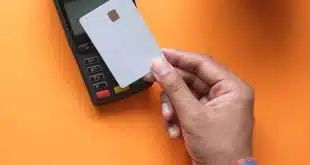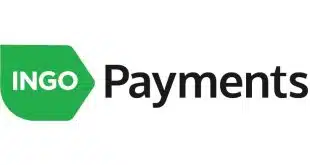After taking a time out in June to resolve problems ranging from a parts shortage to merchant underwriting, the new payment service Square Inc. is about to commercially distribute its cube-shaped card readers for smart phones. Chief executive officer Jack Dorsey, co-founder of the Twitter social network, told attendees at the MidWest Acquiring Association’s annual conference on Wednesday that the release would be “soon,” as in this summer, though that was as far as he was willing to go. “We don’t have an exact date,” he told Digital Transactions News after his speech in Schaumburg, Ill.
Square aims to enable entrepreneurs—from dog walkers and piano teachers to even fairly sizable retailers—to accept general-purpose credit and signature debit cards as long as they have an iPad, iPhone, or iPod touch device from Apple Inc. or a smart phone running on Google Inc.’s Android operating system (Digital Transactions News, April 27). San Francisco-based Square already is handling cash-based transactions for coffee shops and other merchants, but its main focus, card payments, hit a pothole in June. That’s when Dorsey disclosed that the company had encountered a shortage of the cube-shaped card readers, which plug into the audio jacks of smart phones, that it plans to distribute to merchants. That issue was resolved after company chairman Jim McKelvey met suppliers in China, but Dorsey said on Square’s Web site the problem had “transitioned” to a “credit processing and risk issue.” Before it could roll out card acceptance beyond the current test group, Square needed to strengthen its underwriting to handle what he said was “huge demand” while keeping chargebacks and fraud under control.
Square is using a model somewhat akin to that of PayPal Inc. in which it will aggregate transactions from its merchants and stand in for them with the card networks as the merchant of record. PayPal proved that this model, which less than a decade ago seemed risky to the point of being radical, could work, but Square goes further in that it will use some non-traditional fraud-prevention and underwriting tactics. Every transaction will include GPS, or geo-locational, data, Dorsey says. And in deciding whether to accept a person as a merchant, Square will take into consideration not just what it can find through the applicant’s e-mail address, but also social-media involvement such as his or her Twitter account and Facebook page.
“So what does it mean if you have a Twitter account that has 100 followers and you’re ‘re-tweeted’ [the action of other Twitter users forwarding a writer’s post, ostensibly because they like it] once or twice a day? What does it mean if you have a Facebook page that you’ve maintained for two years and you have 100 friends? All these speak to reputation,” he told the audience. “All these are richer than the information that we can get from your Social Security number.”
Square began testing its card system in February with an undisclosed number of participants in San Francisco, New York, St. Louis, and some other locales. While Dorsey faced some sharp questions from the audience about how his system will prevent fraud, he said that so far Square has had no fraud and only three chargebacks in its pilot phase, all of which were resolved in Square’s favor. “We don’t store any card information at all,” Dorsey said, adding that “it would be very difficult” for a Square acceptor to capture card data for fraudulent purposes.
Square’s pricing is 2.75% of the sale plus 15 cents for card-present transactions and 3.5% plus 15 cents for card-not-present sales.





